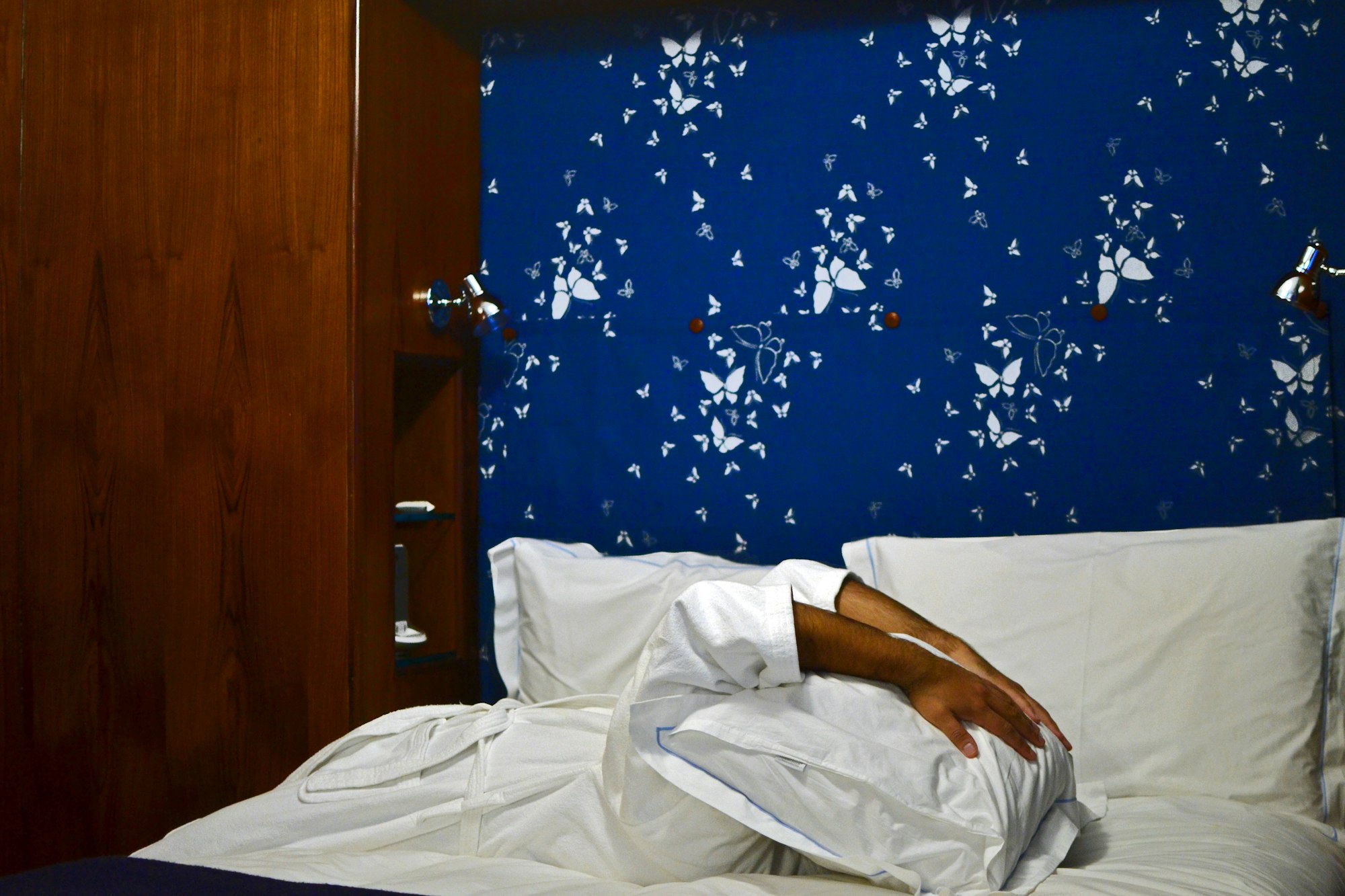The journey into parenthood, often painted in hues of joy and anticipation, can sometimes be woven with long nights and unanswered questions. When an infant struggles with sleep—night after night punctuated by crying fits or restless stirrings—it is not only the mother who stands watchful in the semi-darkness. The baby sleep disorders impact on father emerges as a silent, sometimes overlooked current, shaping the daily realities, emotions, and even the health of many. Have you found yourself lying wide awake, wondering if your fatigue is normal, or if the constant interruptions are affecting your bond with your child and partner? Here’s a detailed walk-through—scientifically grounded and rooted in practical experience—of what every parent should know about the baby sleep disorders impact on father: from the invisible toll on wellbeing to actionable steps for regaining balance in family life, intimate relationships, and day-to-day strength.
Understanding baby sleep disorders and why they matter to fathers
First, a clear view: “baby sleep disorders” refers to a spectrum of conditions that undermine the quality, rhythm, or duration of a baby’s sleep. Think of repeated night awakenings, evening tantrums, refusal to fall asleep without a specific routine (like rocking or feeding), or even more complex issues—like sleep-disordered breathing (including snoring or brief apnoeas). If you see your child tossing, turning, or waking up gasping, it could signal such breathing disruptions. Parasomnias—night terrors, unusual movements, sudden crying at night—add another layer.
But why is the baby sleep disorders impact on father so significant? Scientific studies now confirm: infant sleep problems are linked with substantial paternal sleep loss, triggering both physical (fatigue, headaches, muscle soreness) and psychological effects (emotional volatility, concentration lapses). In fact, 25–40% of typical infants encounter sleep issues, while for families of neurodiverse children, the risk may reach 80%.
Unpredictable routines, family tension, or external stressors (like returning to demanding jobs soon after birth) exacerbate the impact. Baby sleep disorders impact on father by altering everything from brain function—think memory slips, forgetfulness—to immune resilience and overall mood. Fathers may find themselves wondering, silently, if they’re simply not cut out for parenting when, in reality, silent sleep deprivation is at work.
Key Signs that Baby Sleep Disorders Impact Fathers
- Trouble falling or staying asleep
- Chronic tiredness, even after a long rest
- Irritability and shorter fuse with family
- Reduced focus at work and increased errors
- Persistent feeling of being “not fully there” mentally
Daily life turned upside down: How fathers are affected
Night after night, a new father may find himself jolted awake—sometimes every three hours—with the soft demands of infant care calling. Whether he is the one soothing or simply lying awake, ears attuned to each whimper, the cumulative effect is a kind of exhaustion that lingers well past sunrise. With every interrupted sleep cycle, the baby sleep disorders impact on father deepens, extending its reach even into daytime: there is often a dull ache of fatigue, sluggish mornings, and a nagging difficulty to stay on track with regular job or household duties.
- At work, even basic tasks may require more effort.
- Simple home interactions feel weighed down by tiredness.
- Physical symptoms—body aches, headaches, muscle tension—popup unexpectedly.
Interestingly, even fathers who aren’t on night duty still suffer from “secondary sleep disturbance.” The research is straightforward: the mental act of listening and anticipating a baby’s cries can fragment sleep, making genuine rest nearly impossible. As a result, fathers report feeling disconnected, sometimes distant or impatient, and a persistent background stress starts to shape family life. The cycle is intense—fatigue begets stress, stress leads to emotional outbursts, and emotional tension can further disrupt the child’s sleep.
The psychological and emotional dimension
Fatigue alone is hardly the only baby sleep disorders impact on father. Beneath that surface of yawns there bubbles an intricate mix of emotions: frustration, guilt, self-doubt, and even moments of deep sadness. You might ask yourself: “Why can’t I comfort my child like my partner does? Am I failing somehow?”
Medical terminology pinpoints this as an increased risk for “paternal postnatal affective disorders”—a cluster of symptoms ranging from low mood to clinical depression (paternal postnatal depression) and anxiety. In fact, one in ten new fathers may face such emotional turbulence, directly tied to sleep deprivation and the relentless demands of soothing a baby night after night.
- Emotional exhaustion lowers patience and heightens conflicts.
- Self-worth takes a hit; feelings of inadequacy can flare up.
- Social withdrawal or seeking escape in work or sports becomes common—coping mechanisms, not failures.
You may have noticed that small irritations escalate quickly or that conversations with your partner sometimes circle endlessly around baby care without resolution. These are natural, evidence-supported patterns that come from the combined strain of sleep loss and new responsibilities.
Never forget: the scientific literature agrees—when fathers experience persistent emotional distress linked to baby sleep disorders, relationship harmony falters and the baby’s own sleep can worsen in a feedback loop.
Family relationships and couple dynamics: Stress under the same roof
When exhaustion becomes the household currency, tensions sometimes rise as if on a hair-trigger. Couple communication transforms—less about dreams and everyday joys, more about scheduling, logistics, and unspoken resentments. The baby sleep disorders impact on father here is often subtle but profound: conflicts over caregiving roles (“Who wakes up? Who works? Who soothes the baby?”), feelings of exclusion from decision-making, even jealousy over the bonding mother and child display during nighttime routines.
Intimacy—be it emotional or physical—may seem out of reach. Ongoing tiredness crowds out desire, and emotional strain can breed moments of rejection or misunderstanding. Fathers sometimes report a sense of being outsiders in their own family, longing to contribute more but constrained by exhaustion, inexperience, or unspoken expectations.
Yet, the research emphasizes another path: when fathers are actively engaged in bedtime routines, the atmospheric quality of the family shifts. Emotional connection deepens, the child’s sleep shows measurable improvement, and relational satisfaction climbs. Simple shifts—sharing duties, communicating openly, allowing for vulnerability—carry remarkable long-term benefits.
Social life, routines, and self-care: A balancing act
What happens to hobbies, gatherings, or the weekend cricket match? The baby sleep disorders impact on father often exacts a heavy toll here too. With energy rationed for only essentials, activities that once provided relaxation and joy take a back seat. Over time, this breeds isolation. You may find yourself declining social invitations, quietly replacing evening outings with early bedtimes—or simply collapsing into the sofa after another challenging night.
But self-care is not a luxury; it’s a lifeline—for you and for your family. Engaging with community groups, connecting with other fathers, or even a brief chat with a friend can restore confidence and help break through isolation. Research suggests that support—whether emotional, informational, or practical—significantly strengthens family resilience. The more fathers care for their own well-being (short naps, exercise, healthy meals, or moments of stillness), the more they model healthy coping for the entire household.
What the science says: Paternal involvement makes a difference
The past decade has brought a wave of studies mapping out the far-reaching baby sleep disorders impact on father—sometimes more extensive than previously acknowledged. Not only do sleep disorders in infants predict symptoms of depression and anxiety in fathers, but they also alter how fathers engage with their children at bedtime. While some may become overprotective—always intervening at the first sign of distress—others might adopt a more limit-setting approach (delaying immediate response, gently encouraging self-soothing).
Most importantly, science is unequivocal: when fathers participate in bedtime care and sleep-related decision-making, infants experience better sleep, parents report improved mental health, and family conflict declines. Sleep-aware interventions that include both parents, provide sleep education, and address cognitive beliefs about infant care consistently produce stronger outcomes.
Empowering fathers: Practical strategies for daily life
How to reverse the tide? Here’s a roadmap drawn from solid research and parent experiences:
- Adopt regular, consistent sleep routines for your baby; this predictability calms the infant nervous system.
- Create a calming bedtime environment: dim lights, gentle music, quiet voices.
- Share night duties—rotate or split shifts if feasible.
- If possible, use technology (like sleep tracking apps) to monitor patterns.
- Try safe soothing methods: gentle rocking, white noise, quiet bedtime stories (especially those with rhythmic patterns).
- Carve out brief personal breaks for relaxation—remind yourself this is self-preservation, not luxury.
- Stay open with your partner: discuss fatigue honestly and set shared intentions for handling rough nights.
- If distress, emotional numbness, or relational issues persist for more than a few weeks, reach out to a pediatrician or mental health expert; screening is now an established and supportive process.
Remember—there is no universal formula. The baby sleep disorders impact on father may look different for each family, but every small act of teamwork and self-care shifts the balance toward resilience.
Voices from everyday fathers: Adaptation and hope
Practical wisdom flows from lived experience. Fathers across countries have found that dividing caretaking in creative ways, connecting with peer support groups, using simple mindfulness exercises, or even just holding space for humor makes a tangible difference. It’s not about perfection; it’s about finding workable, sometimes unconventional, strategies to weather the long nights.
Stories echo one refrain: with patience, flexibility, and openness to asking for help, the baby sleep disorders impact on father becomes a force for family adaptation and growth, not just struggle.
Key takeaways
- The baby sleep disorders impact on father extends far beyond lost sleep: influencing physical health, emotional well-being, and relationship dynamics alike.
- Fatigue and emotional strain can test the fabric of work life, home responsibilities, and even the deepest bonds.
- Joint routines, honest conversation, and shared strategies empower families to adapt—to reduce night waking, ease stress, and nurture growth for every member.
- Scientific evidence strongly supports regular infant sleep routines and direct involvement of fathers in bedtime care, benefiting all sides of family life.
- If overwhelmed or emotionally distressed, connecting with a professional brings swift support—no one needs to navigate this transition alone.
- For customised advice and free health questionnaires, download the application Heloa.
Questions Parents Ask
How can sleep disorders in babies affect a father’s relationship with his partner?
You may sometimes find that sleep deprivation brings more tension into the couple’s daily life. With both parents running low on patience, even minor disagreements may seem larger than life. Emotional connection can be lost in the practicalities of which bottle is clean or who did the last diaper change, and intimacy may feel out of reach—temporarily. Simple steps like sharing responsibilities when possible, regular honest discussions about how each partner feels, and reminding each other that this phase will not last forever can help maintain connection and reduce friction.
What are some ways fathers can cope with stress related to their baby’s sleep problems?
There are several small but effective actions that can help with stress management. Taking short breaks for rest, even ten minutes of quiet, conscious breathing or stretching, can recharge mental energy. Reaching out to a friend, family member, or another parent to discuss your feelings is comforting and may provide new coping ideas. Joining a parenting group, virtual or in-person, also helps ease the sense of isolation. Importantly, asking for support is a sign of strength and caring for your family’s overall wellbeing.
Can lack of sleep affect a father’s ability to bond with his baby?
Periodic lack of sleep can sometimes make patient, present moments more challenging, and this may raise doubts about the father-baby bond. Even so, emotional closeness is built through multiple small gestures—gentle holding, speaking softly, participating in daytime routines. Every effort, no matter how modest, creates connection. If you feel this bond weakening or have persistent doubts, consulting a paediatrician or therapist can offer reassurance and direction for regaining closeness.









